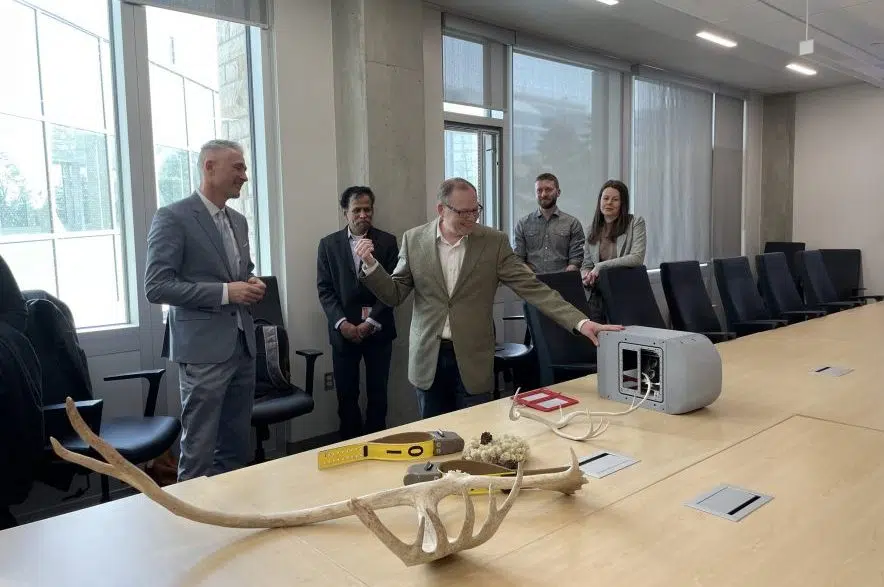Leading researchers on chronic wasting disease at the University of Saskatchewan won’t be seeing their funding wither away as they work to further understand how the devastating disease is impacting species and populations in the province.
A $90,000 grant announced by the Government of Saskatchewan on Monday morning will support research studying the spread of chronic wasting disease (CWD) and meningeal worm in woodland caribou and other boreal species.
Environment Minister Dana Skoropad said Saskatchewan has seen excellent work done on behalf of the environment and its people to protect species at risk.
The donation to further the research will be key, he said, to helping the Ministry of Environment develop a comprehensive model of transmission of CWD, as well as aid conservation of caribou and their habitat and complement efforts to combat CWD.
Woodland caribou are considered a species at risk of the spread of CWD and meningeal worm into the boreal forest.
“In the absence of information, there’s a real fear,” said Dr. Phil McLoughlin, who said this funding will continue to aid his team’s research at a very important time.
Work leading up to this announcement resulted in the team establishing that one species is taking advantage of some of the changes coming to the boreal forest — the white-tailed deer. This species is also bringing CWD into the range of caribou.
McLoughlin said the $90,000 in funding builds on more than $300,000 that has gone towards research on CWD over the past number of years.
Presently, McLoughlin said their research is seeking to understand some of the changes coming to the boreal forest at a transition zone where a disease like CWD can be transferred to some critical northern populations, like boreal caribou.
McLoughlin explained the funding would specifically be used to hire a PhD student to study the actual transmission risk of CWD to caribou. It will also help his team study population dynamics of deer in the southeastern part of the caribou range, using state-of-the-art radio collars and trail cameras.
As a master’s student currently working in the lab, Ayicia Nabigon said she is excited to see a new collaborator coming into the lab, thanks to this funding.
Nabigon herself has focused her work on moose. She explained CWD and meningeal worm are having an impact on various aspects of the environment, which have direct impacts on animals like caribou and moose in Saskatchewan.
The donation adds to support coming from the province and matched by entities like Environment and Climate Change Canada and other industry partners, including Indigenous and Metis groups.
As research ramps up on CWD, McLoughlin noted his excitement that it will go beyond involving biologists on campus by incorporating more Indigenous partnerships in the process, through collecting data from Indigenous hunters as well as licensed hunters.







